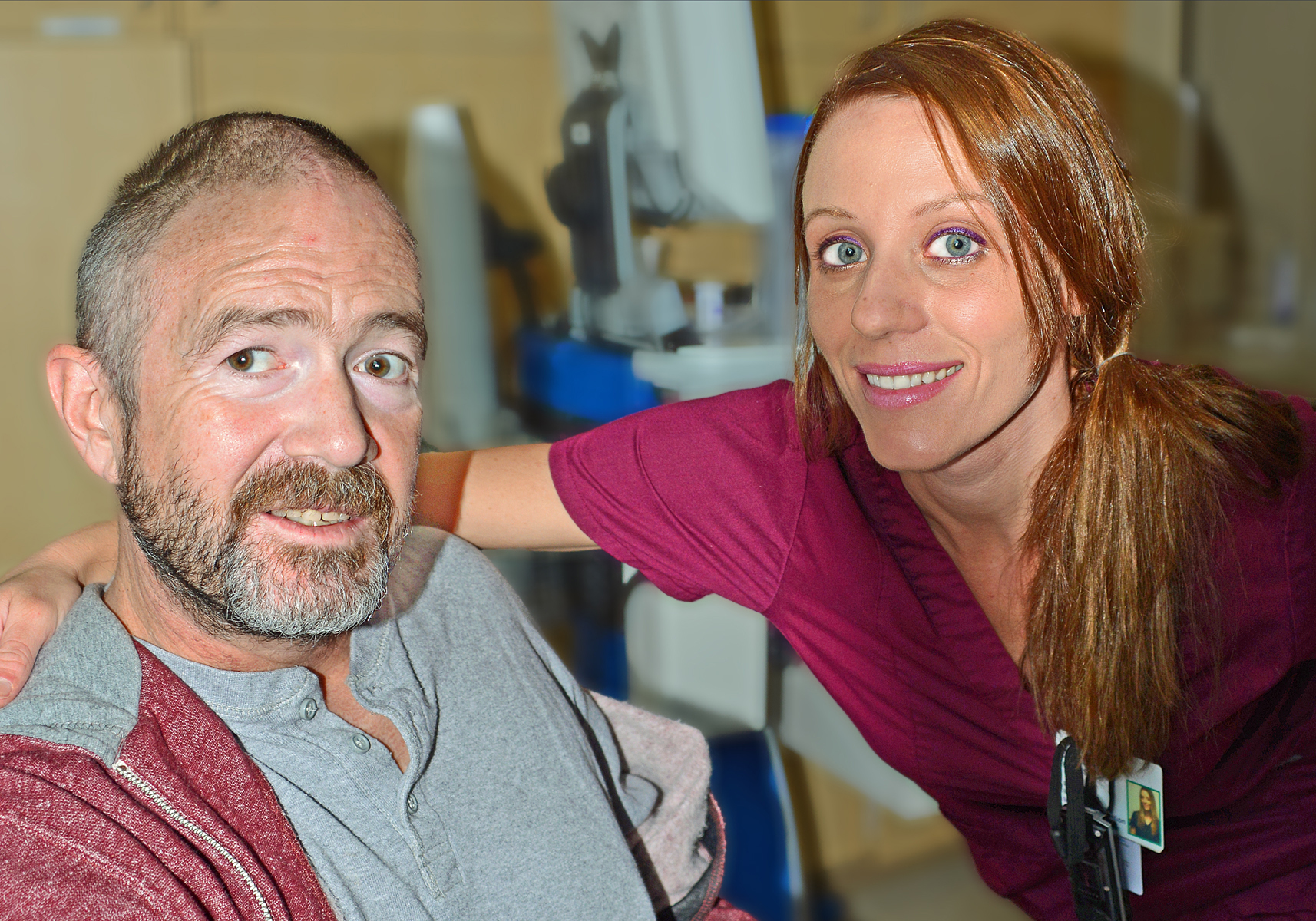Every May, we recognize National Stroke Month. It’s a time for us to raise awareness about the impact of stroke not just on the individual, but on the family. This month, two people are going to share their stroke story from two very different perspectives: survivor and partner. Each week this month, we’ll hear from Steve, a stroke survivor, and his partner Tracy. They’ll recount their experiences at different stages of the recovery process, and provide a perspective that only someone who has been there before can.
Last week, Steve told us about the night it all began. Today, he’ll tell us about what he calls his “descent into LaLa land” – his first few days at Magee.
My first recollection of Magee Rehabilitation Hospital was that of being taken out on a stretcher from the back of an ambulance and wheeled into the institution through some back doorway. I was very much out of it, and I was just looking at things. I was listening to everybody’s conversation around me — between EMTs that were transporting me and then some of the staff of the hospital – but none of it was really registering sensibly to me. All I really knew for sure was that I was in another hospital.
I also knew that I was no longer in the great amount of pain I had been in when I was at Jefferson in the ICU. I was much more comfortable now, but I did not realize the gravity of what had occurred over the last day or so (see Tracy’s post on my craniectomy). At some point, I had been brought into what was going to be my room for a long time to come. I had a long day and fell asleep almost immediately.
Before I knew it, I was being awoken by a nurse. It was the next day. She told me to get up, brush my teeth and wash my face. Whoa, what? It had been a long time since someone told me to brush my teeth and wash my face! After I got cleaned up, they helped me get dressed and transferred me from my alarmed bed to my alarmed wheelchair. Then it was off to the dining area for breakfast.
To say I wasn’t hungry is an understatement. Because of the medication and all of the trauma, the last thing I really felt like doing was eating. But the nurses and aids were very intent upon making sure that I ate – and that I ate everything that was put in front of me. Hey, wait a minute! The last time someone made me clean my plate before I could leave the table was when I was a kid. While now I understand why it was so important that I ate, at the time, all I could think was how much I hated being told what to do.
It quickly dawned on me that this was going to be a new routine for me for what I had been informed was going to be at least 4 to 6 weeks. After getting dressed, brushing my teeth, washing my face and having breakfast, I would then be taken back to my room and it wouldn’t be long before an occupational therapist or physical therapist would come in to take me to the therapy room. Here, I would spend 1 to 2 hours doing whatever they would ask me to do, because they were assessing my ability. A major result of the stroke was the loss of the use of my left arm side. I had been left side dominant growing up into my adult years, so losing my fine motor skills in my left hand was going to be a major part of the rehabilitative process. I used to joke with them that this is like dog training because they would say, “sit, stay, rollover, stand up.” They would repeat those orders in different sequences. They were all very pleasant people and I enjoyed working with them. But I missed my freedom.
As time progressed, some of the tasks seemed like they were very simple to do and some of them seemed impossible. During the interim, I felt like I was constantly meeting new people who were going to be part of the care routine. There were also a few doctors who visited me frequently. Dr. Brian Kucer was a wonderful individual and I looked forward to speaking with him and his attending during breakfast every morning. There was also Dr. Todd Lewis, a neuropsychologist, who was a great individual and I regularly looked forward to meeting and discussing my situation with him.
There were a great many nurses and aides who were very helpful and very kind to me… but I have to be honest. At the time, I didn’t feel that way. I went from living a life of complete freedom to a life of complete micromanagement. My meals, digestive process, medication, etc. were all regulated. After all I had been through, this was one of the most difficult transitions. I’m not sure I ever got quite used to it. But in a situation like this I thought the best thing to do was be as flexible and as adaptive as possible.
And as time went on, that attitude paid off… in dividends.






